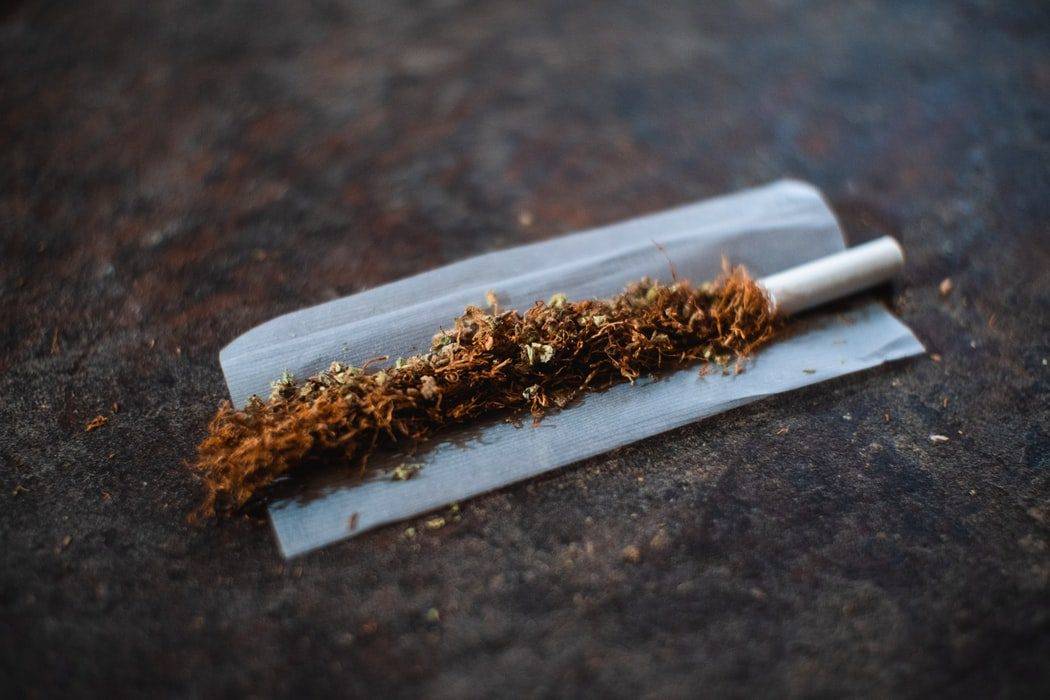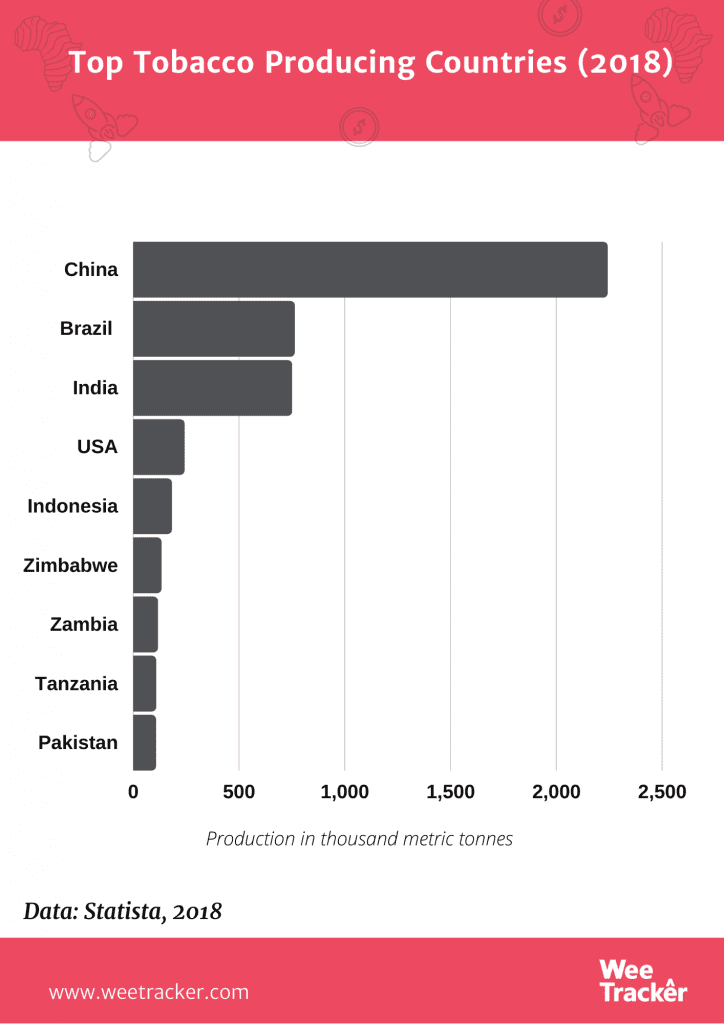Covid-19’s Attempt To Snuff Out African Tobacco Is Going Up In Flames

At the end of March, South Africa had imposed the most severe and controversial lockdown in Africa. To add to its combating efforts against the coronavirus, the nation included a ban on the sale of alcohol and tobacco.
The effects rang throughout Southern Africa, the unofficial capital of the continent’s tobacco business. In as much as Covid-19 presented a challenge for the industry, there is reason to believe that the later would be greater than the present.
Developing Africa has become an attractive market for the tobacco industry due to its increases in its income, growing population size, foreign direct investment (FDI), and improved life expectancy.
A Ban That Backfired
South Africa plans to ease its nationwide lockdown as from June 1, allowing limited alcohol sales and the reopening of bars. But, the government does not show signs of lifting the ban on tobacco products like vapes and snus.
The initial, controversial plan was to reduce the rate of tobacco and alcohol-related health emergencies in a bid to free up hospital beds for coronavirus patients. Nonetheless, the prohibition, which has been frowned upon as an unnecessary move dipped in unexplainable dubious governance, is pointless.
At least, that is according to a fresh study from the University of Cape Town which surveyed over 16,000 people about how they’ve been affected by the country’s cigarette ban.
The highlight of the study is that the ban on the sales of cigar is failing more than it is succeeding. Its original aim was to support the health of South Africa’s public, but the current downsides are beating the advantages to the game. Most of all, smokers are illicitly getting cigars in even larger quantities, giving unusual brands a shot at mattering.
41 percent of the persons considered in the survey made attempts to quit smoking, with only 39 percent being successful. 61 percent said they did not bother to wean themselves off cigars, while 12 percent of the actual quitters said they’d pick back up once the ban is lifted.
In April 2020 alone, South Africa’s government lost an estimated USD 16 Mn in taxes due to the tobacco prohibition. It is this large because the industry is worth over USD 1.7 Bn (ZAR 30 Bn) and is supported by 8 million adult consumers. Nevertheless, it continues to be seriously affected by the rampant growth in illicit cigarettes.
The industry contributed ZAR 10.9 Bn (USD 622,548,050) in excise duty to the fiscus in 2017/2018, but illegal trade grew to 33 percent of the total market in 2018, according to an industry report from Research and Markets.

Comeback Foreseen
Africa can produce its own tobacco, sell it within and consume within— for such an uncertain period in history, that is a good thing.
The present challenges are much, but there is much to be gotten post-lock down. Bongani Cigars, a Mozambique-headquartered producer of Cuban-style luxury cigars in Africa, is being affected because supply chains have been dried up, thanks to travel restrictions and border closures.
“Nevertheless, we are seeing strong demand that should be enough to offset the months of idleness in the business,” Kamal Moukheiber, founder and CEO of Bongani, told WeeTracker.
According to the Lebanese entrepreneur, clients have been affected by the pandemic, but everyone expects for things to go back to more than normal after the lockdown, especially in South Africa where the industry is more pronounced.
Kamal added: “Local currencies have gone down compared to the United States dollar. It would be hard to get materials from abroad for the meantime, but there are ready distributors and consumers. Once the restrictions are eased and supply chains are rejuvenated, we can easily make up for lost time.”
In Zimbabwe, the Covid-19 regulations mandated by TIMB demands for the decentralization of tobacco auction floors for the current season. It has turned out to be a blessing in disguise for farmers whose movements have become cheaper and sales proven more productive.
Every year, tobacco farmers in Zimbabwe make long trips to Harare to deliver their produce. They risk spending days at the auction floors and falling prey to thieves in the capital.
But, thanks to Covid-19, they need not go through the stress and have the opportunity to earn a lot more. Well, only 15 percent of tobacco sales in 2019 were conducted outside Harare.
Even Inside The Lockdown
Presently, South Africa is not the only country whose tobacco industry is being swayed by the novel pandemic. In Malawi, where tobacco accounts for 11 percent of GDP and more than 60 percent of its export earnings, the Covid-19 situation has pretty much disrupted its usual auctions where it gets a huge chunk of money.
Meanwhile, the United States had restricted the importation of tobacco from Malawi, and issued a withhold release order over child labor practices. Still, there is a 4.5 percent increase in tobacco sales against USD 37.7 Mn dollars made during the same period in 2019.
The 5-week USD 39.4 Bn sales value validates the optimism of Malawi’s Minister of Agriculture and Irrigation, Francis Kasaila, who felt that the market will be good despite the pandemic.
In Zimbabwe, also, farmers complain of tight restrictions on movement introduced since the emergence of the pandemic, making it difficult to sell their produce. This month (May), the country’s tobacco season was already one month due. As it is, farmers are struggling to reach the auction house in the country’s capital, Harare.
Social distancing measures made the government promise to decongest the main auction center by setting up exchanges elsewhere. But those plans are yet to materialize.
Despite this, Zimbabwe has raked in USD 64.4 Mn from the sale of 28.2 million kilograms of tobacco in a matter of 16 days, according to the Tobacco Industry and Marketing Board (TIMB). Out of the 97 percent of contract-crop tobacco that was delivered, only 3 percent went to auction floors.
That means, Covid-19 is giving contract floors an emergency boost, as buyers offered a highest price of USD 6.60 kilograms, while auctions remained at USD 4.99 per kilogram.
As tobacco production increases in Africa, so too does consumption. A study examined cigarette consumption in 22 countries, which host 80 percent of the continent’s population. It found that between 1990 and 2012, cigarette consumption increased from 165.6 billion to 238.5 billion cigarettes, or by 44 percent.